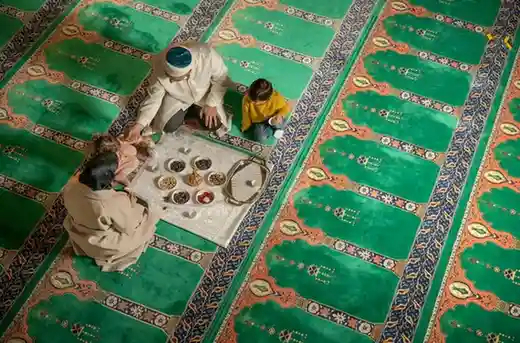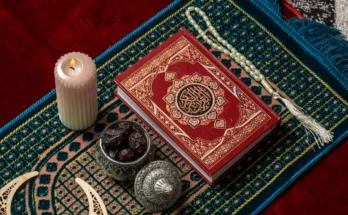In a world grappling with injustice, inequality, and disconnection, the teachings of Islam offer a timeless moral compass. With roots in divine revelation and a legacy of profound human ethics, Islam guides believers on how to live a balanced, purposeful, and compassionate life. Often misunderstood and misrepresented, the essence of Islam is not one of restriction but of guidance, harmony, and justice.
At the heart of its teachings lies a universal message: human dignity, compassion for others, and fairness in all dealings. From how we treat the poor to how we honor women, Islam lays down a blueprint for a just and equitable society. Let’s explore how the principles of Islam offer a roadmap for living a meaningful life, defending women’s rights, and creating a society where wealth does not determine worth.
The Foundation:
-
Worship as a Way of Life
Islam does not confine worship to prayer rugs or mosques. Worship is woven into everyday life. It’s found in honesty at work, kindness to neighbors, and compassion toward animals. The Qur’an teaches that every action done with sincerity and good intention can become an act of worship—from smiling at someone to feeding the hungry.
Living a good life in Islam means staying spiritually aware and socially responsible. It’s not about perfection but about striving, constantly checking one’s intentions, and treating others as creations of God.
-
The Balance Between Dunia and Akhirah
Islam offers a balanced approach between this world (Dunia) and the Hereafter (Akhirah). A Muslim is encouraged to seek success in both realms. Hard work, education, family care, and financial growth are all embraced—as long as they are pursued ethically. The Prophet Muhammad (peace be upon him) said, “Work for this world as if you will live forever, and work for the next world as if you will die tomorrow.”
This philosophy creates a holistic lifestyle—one where spiritual well-being and worldly responsibility go hand in hand.
Women in Islam:
-
A Divine Emphasis on Honor and Respect
Contrary to stereotypes, Islam uplifts women with honor, value, and rights given by God, not man. Over 1,400 years ago—long before many modern societies—Islam granted women the right to own property, inherit wealth, receive education, and make personal and financial decisions.
The Qur’an dedicates entire chapters to the rights and responsibilities of women, and the Prophet Muhammad consistently emphasized their respect. He said, “The best among you is the one who is best to his wife.” His own behavior showed tenderness, support, and deep admiration for the women in his life, including his wife Khadijah, a successful businesswoman.
-
A Protective and Empowering Framework
Protection in Islam does not mean control. It means safety, honor, and freedom from harm. A woman has the right to say no to marriage, to choose her spouse, to seek divorce, and to be financially independent. Her dignity is sacred.
Islam also encourages men to act as protectors—not owners—of women. This includes emotional care, physical protection, and respect for her decisions and privacy. In the Qur’an, both men and women are addressed as “believers” in equal terms, given the same spiritual and moral expectations.
Equality Beyond Wealth:
-
The Illusion of Material Status
In many societies, a person’s value is measured by their wealth, titles, or outward appearance. Islam directly challenges this concept. The Prophet said, “Allah does not look at your appearance or wealth, but at your hearts and your deeds.”
This teaching levels the playing field for all of humanity. A janitor may be closer to God than a millionaire. A woman in modest clothing may be more honorable than one in luxury fashion. The emphasis is always on sincerity, intention, and action—not status symbols.
-
Brotherhood and Sisterhood Without Class Division
During the Prophet’s lifetime, his companions came from vastly different backgrounds: rich merchants, freed slaves, rulers, and orphans. They were all treated with the same respect and sat shoulder to shoulder in prayer, with no special ranks except in piety.
This vision of equality is alive in practices like Zakat (charitable giving) and Ramadan (fasting), where the rich are reminded of the struggles of the poor, and generosity becomes a spiritual obligation. Wealth in Islam is a test, not a crown.
Justice and Compassion at the Heart of Islam:
-
A System That Values Fairness
Justice (Adl) is one of the core values in Islam. The Qur’an says, “Stand firm in justice, even if it is against yourselves.” Whether judging between friends or ruling a nation, fairness must override personal bias. This applies not just in courts but in homes, businesses, and communities.
From forgiving others to paying workers fairly, Islam builds an ecosystem where fairness becomes part of everyday life. It’s not about utopia—it’s about intentional living with a moral compass.
-
Mercy Above All
One of the most repeated phrases in the Qur’an is: “In the name of Allah, the Most Merciful, the Most Compassionate.” Mercy isn’t just a trait of God—it’s a lifestyle expected of believers. The Prophet forgave those who hurt him, prayed for his enemies, and showed deep compassion to children, the elderly, and even animals.
This divine expectation of mercy is why Islam doesn’t only emphasize laws but also hearts. It’s not just about being right—it’s about being kind.
Education, Knowledge, and Personal Growth:
-
The First Revelation
The very first word revealed in the Qur’an was “Iqra”—Read. This highlights how deeply Islam values knowledge. Both men and women are encouraged to seek education, explore the world, and learn constantly. The Prophet declared that “Seeking knowledge is a duty upon every Muslim.”
Islamic history is filled with scholars, scientists, and philosophers who contributed to medicine, astronomy, and literature. Knowledge is seen as a light that guides personal growth and communal progress.
-
A Legacy of Intellectual Empowerment
From Fatima al-Fihri, who founded the world’s oldest university in Morocco, to Al-Khwarizmi, the father of algebra, Islamic history celebrates thinkers and doers. This legacy is a reminder that faith and intellect can walk hand in hand.
In daily life, this means asking questions, thinking critically, and using knowledge to improve society. Islam never discourages reason—it invites it.
Conclusion:
Islam is not simply a religion of rituals; it’s a complete way of life. It teaches how to eat, speak, dress, marry, trade, and forgive—not to control, but to elevate the human experience. At its heart, Islam is about balance: between rights and responsibilities, between justice and mercy, and between this life and the next.
It teaches us to see past wealth and beauty, to value every soul as a creation of God. It asks men to honor women, not suppress them. It calls on the rich to lift the poor, not flaunt their fortune. And it urges every individual to build not just a better self, but a better world.
In today’s noisy world, the teachings of Islam remain a quiet, enduring light—a guide not only for Muslims but for anyone who believes in the power of justice, compassion, and dignity.




